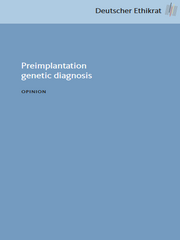Genetic Diagnosis
Genetic testing refers to diagnostic methods that can provide information about individual genes or the entire genetic make-up of an organism (genome). Genetic investigations analyse genes or gene products. There are various reasons to carry out a genetic test, as well as a varying informative value of such a test. In Germany, the use of genetic testing is regulated by the Gene Diagnostics Act and is only permitted within the framework of medical treatment. The reason for a genetic test can be the existence of a clinical suspected diagnosis as well as the wish to confirm or exclude a family relationship. A genetic test can be used to examine the genetic disposition of a person or to determine or rule out mutations which (with varying probability) can lead to a disease in the course of a person’s further life. There is also the possibility of obtaining more detailed information on the tolerability or potential efficacy of drugs via genetic tests. Further applications of genetic tests are prenatal or pre-implantation diagnostics. Depending on the area of application, different questions are connected with genetic testing, which have both individual and social ethical implications.






